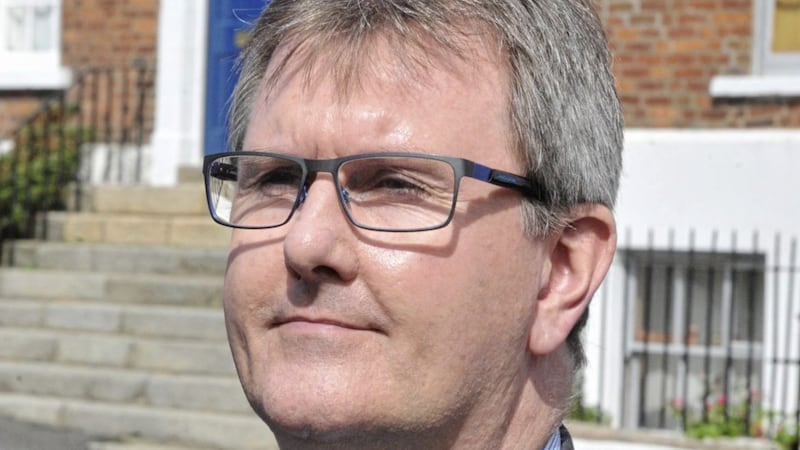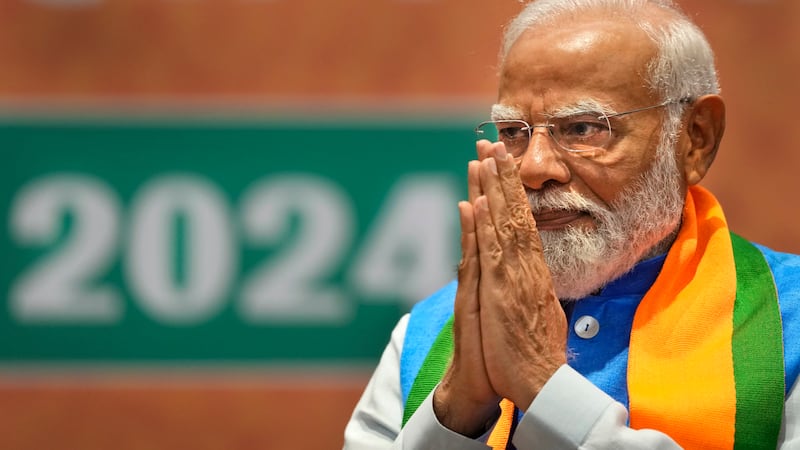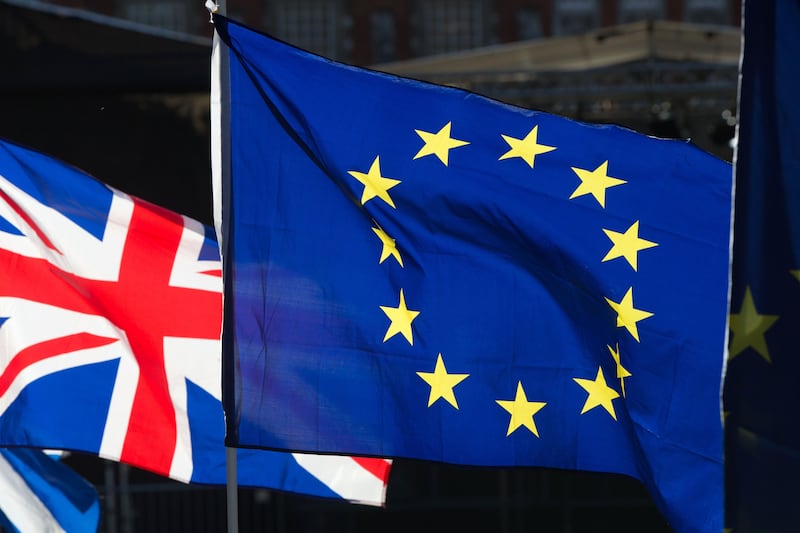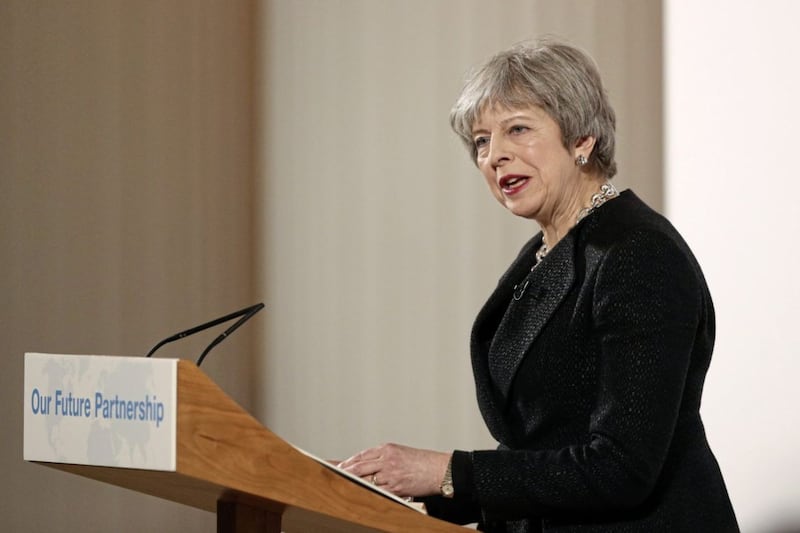IRELAND is in danger of being used as a "bargaining chip" between the EU and UK in Brexit negotiations, a DUP MP has warned.
Sir Jeffrey Donaldson claimed European Council president Donald Tusk did not have Ireland's best interests at heart and that the Dublin government needed to be wary of being used.
He was speaking after European leaders made provision for the north to automatically rejoin the EU in the event of united Ireland.
The statement at a Brussels summit on Saturday confirms that the region would automatically assume the EU membership already held by the Republic in the event of unification, rather than having to reapply.
Precedent already exists in the case of East Germany becoming part of the EU after reunification with West Germany.
Sir Jeffrey criticised Mr Tusk's assertion that "people, money and Ireland" needed to be settled before the UK could negotiate any trade deal.
"Given the dependence of the Irish economy on trade with the UK, I think Dublin would need to be careful that it doesn't become a bargaining chip used by the EU to exert pressure on the UK," the Lagan Valley MP told The Irish News.
"In the end Dublin has a far greater self-interest in ensuring the UK gets the best deal possible than any other EU member state and therefore Dublin should resist becoming a bargaining chip in this because ultimately it could damage its trading relationship with Britain."
Sir Jeffrey said the 'EU27' leaders' declaration in the event of a united Ireland was "no big deal" and merely affirmed previous agreements.
He also dismissed concerns voiced by former Ulster Unionist leader David Trimble that the declaration could "stir up nationalist feeling".
"I don't think EU guidelines for a very complicated negotiation is the catalyst for turning anybody's feelings up," he said.
The Lagan Valley MP also dismissed the notion that Brexit could lead to a united Ireland.
Taoiseach Enda Kenny shared Sir Jeffrey's assessment of the EU27 declaration in regard to the likelihood of a border poll but nonetheless described it as "hugely important".
The Fine Gael leader said the move dispelled any doubt and uncertainty that had been created as a result of the Brexit vote.
However, he made clear he does not believe the conditions for calling a vote on unity currently exist.
"Let me be clear, this is not about triggering any mechanism (for a vote)," Mr Kenny said.
"I have been very consistent in my view that the conditions for a referendum do not currently exist but acknowledging the principle of the potential within the Good Friday Agreement (for unification) is hugely important."
Sinn Féin president Gerry Adams claimed the European Council guidelines did not go far enough.
"We welcome the provision for the north to seamlessly resume full EU status following a successful Irish unity referendum, however, it is disappointing and deeply concerning that even at the first hurdle the Irish government has fallen short," he said.
"The European Council guidelines fail to go far enough – they do not even match those agreed by the EU Parliament."
He said failure to secure a "better deal for Ireland" during the negotiations would have profound implications for the economy and the Good Friday Agreement and repeated his call for designated special status for the north within the EU.
SDLP leader Colum Eastwood welcomed the EU move.
"Over the course of the last number of months, the SDLP have been working hard with the Irish government and our sister parties in Europe to ensure that the voice of the north is clearly heard," he said.
Ulster Unionist MLA Doug Beattie said the summit's declaration did not change the north's constitutional status.
"The Ulster Unionist Party has been clear that the focus should be on ensuring that the United Kingdom, and within that Northern Ireland, gets the best deal possible through the UK government’s negotiations with the EU," he said.
"It is sad that some are opportunistically using Brexit to try and unpick the union."
Meanwhile, DUP leader Arlene Foster has begun a UK-wide campaign aimed at promoting the benefits of maintaining the union.
Speaking in Glasgow on the eve of Saturday's summit, the former first minister warned that efforts to broaden unionism's base meant certain positions may have to be reconsidered so they do not "deter support as a result of things that are not fundamental" to the union.








